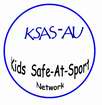|
Children have a fundamental right to be safe from any form of
abuse while involved in sport or associated activities. This is
a legal requirement as well as a moral obligation. Child
protection requires a commitment from all levels in sport to
ensure sporting environments are safe for all children. This
includes an awareness of the requirements and risks, a
commitment to practices that minimise the risks, and the ability
to appropriately respond to incidents of child abuse.
Research indicates, and high profile cases have highlighted,
the need for a comprehensive and consistent approach to child
protection.
Is child protection an issue for sport?
Sport is a particularly vulnerable area for potential child
abuse because it:
- involves a large number of people under the age of 18;
- frequently involves overnight trips (e.g. training camps
or competitions); and
- usually involves close relationships between adults and
children, where the adults are in positions of trust and
able to assert authority and power over children.
The most common characteristics of all forms of abuse against
children are an abuse of power or authority, or a breach of
trust.
By far the majority of staff and volunteers involved with
children are encouraging, supportive, competent and ethical in
their activities. However, it is recognised that some people are
attracted to child-related activities and employment in order to
gain access to children for ulterior purposes.
National crime statistics released in May 2003 show
almost half of all cases of sexual assault reported in 2002
involved a child. In about 75 per cent of cases the victim
knew their offender, however, the majority of those known
offenders were not family. The report
concludes that access and vulnerability are the greatest
issues (rather than stranger danger) - sport provides easy
and direct access to and frequently unsupervised contact
with children.
What is child protection?
Child protection involves legislation, policies and practices
to keep children safe from harm, to protect them from people who
are unsuitable to supervise or work with children and to ensure
that a child’s wellbeing and best interests are paramount
considerations.
Legal requirements
Two aspects of child protection legislation that are most
relevant to the sport industry are reporting and screening
processes
Mandatory Reporting
Mandatory reporting is a legal requirement for specific
persons (mandated person) to report reasonable suspicions of
children being, or at risk of being, abused or neglected. It
applies when that suspicion is formed during a person’s work,
regardless of whether it is paid or voluntary work, or in the
carrying out of official duties. A mandated reporter must report
suspicions irrespective of who is implicated (e.g. colleague,
friend, manager, volunteer). It has been introduced on the
grounds that children require the assistance of adults to advise
child protection agencies that they are in need of protection
Working with Children Checks
Fundamental to every child-safe environment is recruiting
staff and volunteers who do not pose a risk to children. One way
this is done is by "screening" applicants who wish to work
with children. The term "screening" is used to refer to the
process of conducting a criminal history check on an individual.
In some states professional disciplinary records or
investigative information held by police are included in the
screening process.
This screening process is called a "Working with Children
Check" (WWCC) and is required of people who work with children
under 18 years of age in particular businesses or categories of
paid or voluntary employment. The WWCC aims to prevent people
with inappropriate criminal and professional disciplinary
records from working with children or volunteering in children's
clubs and activities
|
To help clubs
provide a fair and safe environment,
information is provided on:
NSW Office of Communities
There are a number of steps you need to take to create a safe
environment for children and young people to enjoy sport and recreation:
|
|
|
|




